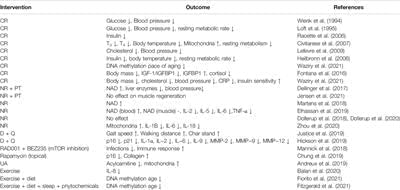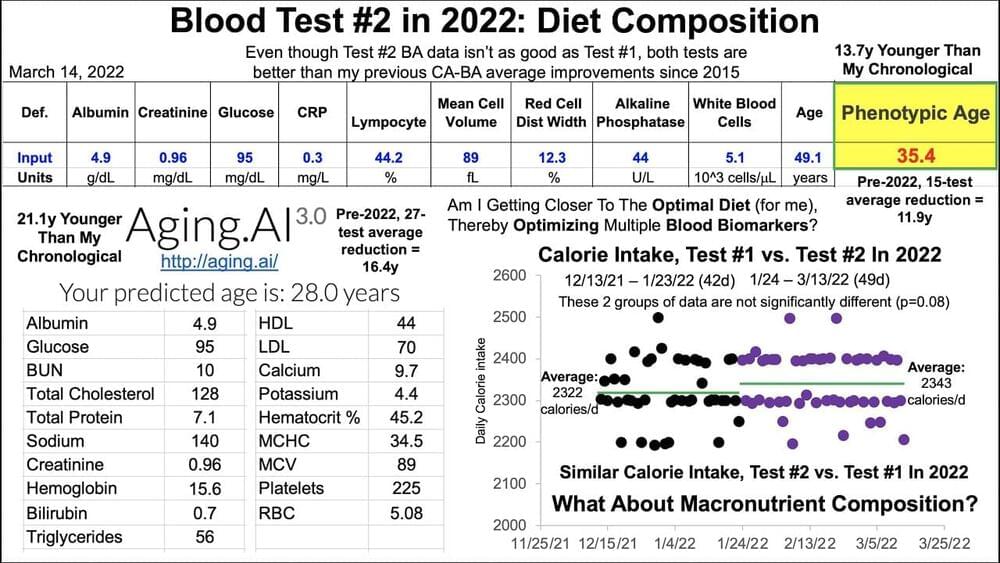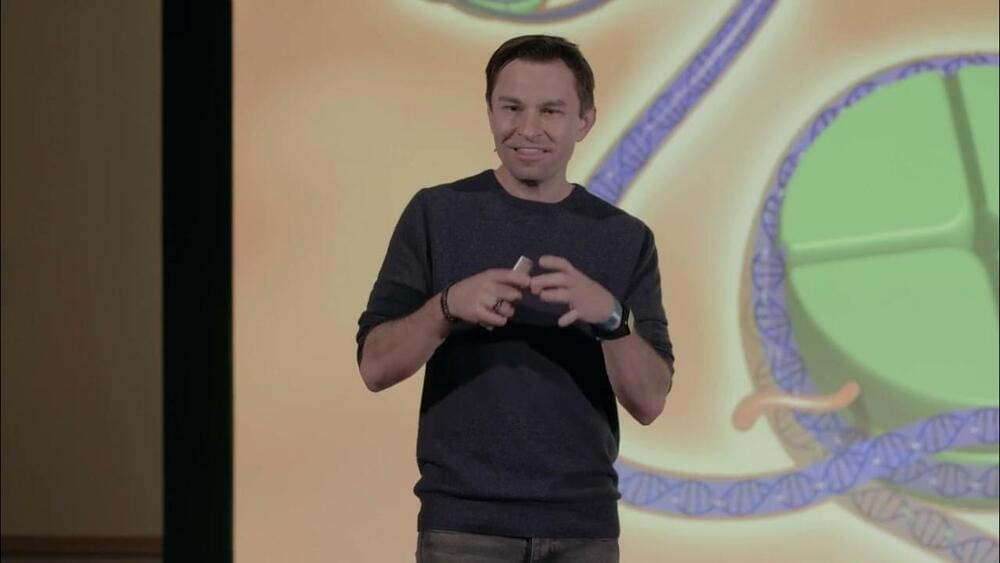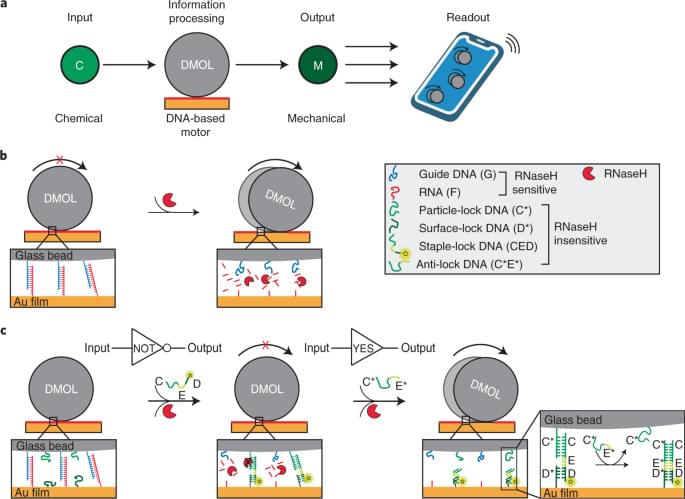Apr 3, 2022
Clinical Trials Targeting Aging
Posted by Liliana Alfair in categories: biotech/medical, life extension
A miniature review of.
The risk of morbidity and mortality increases exponentially with age. Chronic inflammation, accumulation of DNA damage, dysfunctional mitochondria, and increased senescent cell load are factors contributing to this. Mechanistic investigations have revealed specific pathways and processes which, proposedly, cause age-related phenotypes such as frailty, reduced physical resilience, and multi-morbidity. Among promising treatments alleviating the consequences of aging are caloric restriction and pharmacologically targeting longevity pathways such as the mechanistic target of rapamycin (mTOR), sirtuins, and anti-apoptotic pathways in senescent cells. Regulation of these pathways and processes has revealed significant health-and lifespan extending results in animal models. Nevertheless, it remains unclear if similar results translate to humans. A requirement of translation are the development of age-and morbidity associated biomarkers as longitudinal trials are difficult and not feasible, practical, nor ethical when human life span is the endpoint. Current biomarkers and the results of anti-aging intervention studies in humans will be covered within this paper. The future of clinical trials targeting aging may be phase 2 and 3 studies with larger populations if safety and tolerability of investigated medication continues not to be a hurdle for further investigations.
As age increases, so does the susceptibility to a series of chronic diseases which ultimately result in fatal endings. This is such a basic part of life that we rarely consider if there is anything we can do to postpone it. So far, the principal of “one-disease-one-treatment” has brought medical sciences far but this line of thought may soon be outdated when it comes to aging related conditions. It is like fighting a many-headed monster: If one condition is treated successfully, another emerges shortly after. This point is illustrated as eradicating the two leading causes of death (cancer and cardiovascular disease) extends mean life span by 3.3 and 4 years, respectively (Arias et al., 2013). Interestingly, the gain of treating multiple diseases combined exceeds the sum of these numbers.


















